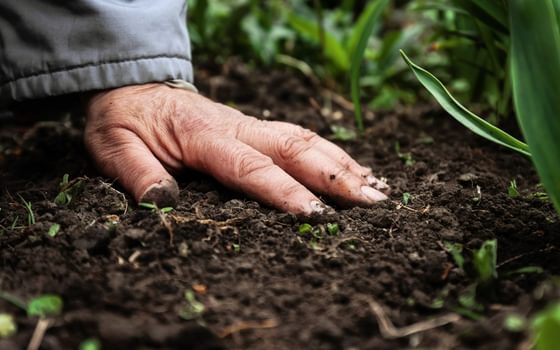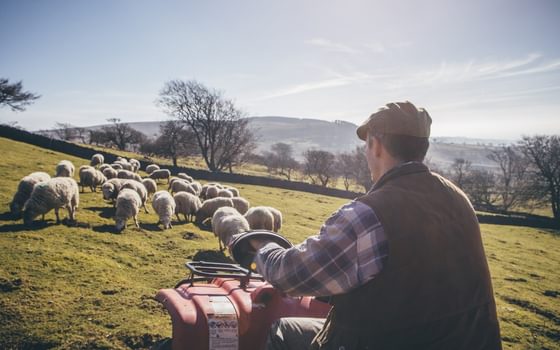A raw deal for UK fishers
Politicians haven't delivered on Brexit promises, leaving fishers feeling betrayed and lied to
25 January 2021
Last week, fish and seafood exporters protested in London against the ‘Brexit trade deal’. While a no-deal would have been the final nail in the coffin for the struggling industry, this trade agreement, as we predicted, does not live up to the expectations of UK fishers.
NEF has shown that not all fishers are in the same boat, with a large part of the fleet at risk due to a reliance on shellfish exports to the EU and a small group of quota-owners with large potential gains from Brexit. As it stands, out of the potential winners and losers of Brexit, no one actually wins. Exporters and inshore fishers in particular are bearing the brunt whilst also leaving the biggest UK fish market looking like a ghost town.
Brexit was sold to the public by politicians and parts of the fishing industry as a‘sea of opportunity’; a message that captured the media narrative. There were promises of thousands of tonnes of additional quota, exclusive access to the 6 – 12nm territorial seas, and the taking back control of the 12 – 200nm limit while excluding EU vessels unless they fished on UK terms.
Beyond that, fishers were told trade would not be impacted and the EU market they so heavily rely on would still be available on the same terms. As recent events have shown, this hasn’t happened and the government’s broken commitments are exposed.
In fact, the deal grants EU vessels continued access to the 6 – 12nm limit, despite this being a ‘UK red line’ in negotiations and the most important issue for the inshore fleet in England. This also means there will be little change regarding access to the whole Exclusive Economic Zone, an issue for the larger scale fleet segments accessing grounds in the North Sea, Western approaches and Celtic Sea.
There is an increase in the UK quota share over the next five and a half years, but most of the gains are for a small number stocks and will only benefit certain parts of the fishing industry. Even these quota gains are marginal and nowhere near the promises made pre referendum, something all fishing organisations now seem to agree on.
As well, quota increases are not uniform across all species and areas. The increases are mainly for the high-volume pelagic mackerel, herring and Norway pout stocks (fished by the largest scale and most profitable part of the industry), with some increases in Celtic Sea haddock stock and North Sea hake and sole. Beneficiaries will be in certain ports and parts of the fishing fleet, with the most symbolic stocks not changing at all. The biggest percentage increases in cod touted for Scotland are actually so low in absolute terms, it’s not enough to be viable as a fishery. This political failure combined with the capitulation on the promise of an exclusive 6 – 12nm limit shows how far the rhetoric and jingoism was from reality.
The UK fleet will also miss out on the EU subsidies going forward, a €6.4 billion fund which would have been much larger with the UK still in the EU. Despite the government’s £100m announcement to rebuild Britain’s fishing fleet, it’s not clear that the current situation is looking any better than the EU Common Fisheries Policy for many UK fishers.
Speaking to and hearing from fishermen in Scotland and England over the last few weeks, they feel betrayed and lied to. They backed Brexit in good faith with the expectation of big changes, they even championed the cause and became poster boys for the campaign. But politicians haven’t delivered, and fishers have been dropped in an even worse situation with callous indifference.
Despite Dominic Raab’s denial that these seafood businesses are facing collapse because of Brexit, Boris Johnson is willing to pay compensation, to the tune of £23 million – perhaps an admission that the sector has been handed a very raw deal. A key problem now for the UK is that the aspirations of the Fisheries White Paper, and the Fisheries Act were dependant on a more favourable, but clearly undeliverable Brexit deal. Going forward, there are a few key opportunities for government to support the sector.
Firstly, the White Paper showed a commitment to trying to reduce the environmental impact of fishing, and rewarding and incentivising ‘low impact fishing’. Using the small amount of new quota as incentives for low impact fishing could still happen, although the nature of the quota gains means the scope to do this in a meaningful way is very limited. NEF have pioneered an approach to develop the criteria to define low impact fishing, run a project for Defra co-designing a definition for low impact fishing with the industry, and will be pushing to ensure that the small gains are fairly distributed to help low impact inshore fishers.
And secondly, with the industry under the spotlight and Covid-19 boosting public support for our key workers, we should also be looking to improve the industry and supply chain: making jobs better, safer and more appealing, and ensuring fairer pay for migrant fishers working in the offshore fishing sector.
A just transition in UK fisheries, focussed on moving the industry towards better working conditions, more value captured for the small-scale producers and lowering the environmental impacts across the fleet, is now the only light on the horizon.
You can hear more from the fishermen on their views here.
Image: Unsplash
Topics Fisheries & farming






